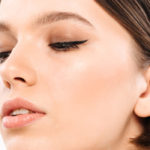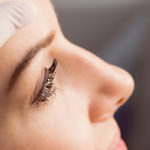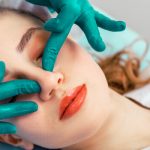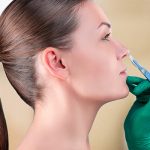What Not To Do After Rhinoplasty: Key to a Smooth Recovery

Before delving into the recovery process, let’s first discuss the different types of rhinoplasty procedures available.
Understanding Rhinoplasty Procedures
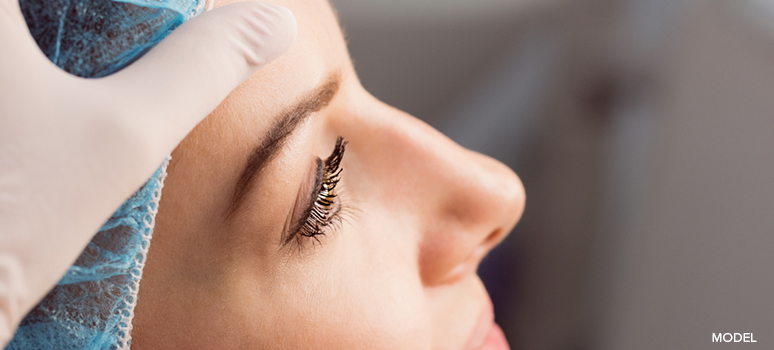
Recommended Article:
Open vs. Closed Rhinoplasty: Choosing the Right Techniques for Your Nose Job
Discover the differences between open and closed rhinoplasty in our latest blog post. Learn about the benefits and drawbacks of each technique, and find out why Memorial Plastic Surgery is the top choice for your rhinoplasty needs.
The two most commonly performed techniques are the “open” and “closed” procedures. While both approaches involve surgical incisions, their nuances vary to accommodate each patient’s unique needs and anatomical considerations.
The “open” rhinoplasty procedure is slightly more invasive but provides the surgeon with improved access, enabling more extensive corrections. On the other hand, the “closed” procedure utilizes a small incision inside the nose, resulting in a discreet scar, and is often suitable for patients seeking more minor refinements. To determine the most suitable approach for your desired outcome, it is essential to have a thorough consultation with your surgeon.
The Recovery Process: What to Expect
Every patient’s recovery experience may differ, but it’s crucial to understand the general timeline and post-operative care guidelines. Following your rhinoplasty procedure, it is normal to experience some swelling, discomfort, and minor bleeding or discharge in the initial days. These symptoms are part of the natural healing process and should subside as you progress in your recovery journey.
To support optimal healing, your surgeon will typically apply a splint and bandaging to stabilize the nose. These aids will aid in reducing swelling and ensuring the desired shape and contour of your new nose. Now, let’s delve into the best practices and activities to avoid during your rhinoplasty recovery.
Rhinoplasty Don’ts: 8 Things You Shouldn’t Do After Surgery
1. Physical Activities: Patience is Key
Engaging in strenuous physical activities, such as rigorous exercise and weightlifting, is strongly discouraged during the initial phase of your recovery. To avoid complications and ensure a successful outcome, it is best to follow your surgeon’s instructions and refrain from these activities for a minimum of three weeks after your surgery.
While you may be eager to return to your regular exercise routine, it’s essential to prioritize your healing process. Physical exertion can strain your body and potentially affect the delicate tissues of your nose. Activities that involve contact sports, like basketball, should be avoided for a more extended period to prevent any accidental facial injuries.
2. Intimacy: Give Yourself Time
Feeling confident after your rhinoplasty is natural, but it’s crucial to allow your body sufficient time to heal before engaging in intimate activities with your partner. Similar to physical exertion, intimate activities should be avoided for at least three weeks following the procedure. By allowing your body to recover undisturbed, you reduce the risk of complications and enhance the overall healing process.
3. Water Activities: Stay Dry
One of the cardinal rules during rhinoplasty recovery is to avoid getting your nose wet. Swimming and submerging your face in water should be avoided for a minimum of six weeks. It is imperative to receive clearance from your surgeon before resuming any water-related activities, as they will provide guidance on when it is safe to do so. Additionally, your surgeon will offer specific instructions on how to handle bathing immediately after your procedure to minimize any risks.
4. Dietary Considerations: Nourish Your Body
Maintaining a well-balanced diet is crucial for your overall health and healing process. While you are encouraged to enjoy a varied diet in your day-to-day life, it is advisable to be mindful of your food choices immediately after surgery. Opt for high-fiber foods that promote regular bowel movements and avoid low-fiber or junk food options that may lead to constipation. By prioritizing a healthy diet, you contribute to your body’s recovery and ensure a comfortable healing experience.
5. Clothing Choices: Opt for Comfort
While you navigate through your recovery journey, it’s important to select clothing that minimizes contact with your nose. Pullover sweatshirts and turtlenecks may inadvertently irritate or snag your nose, potentially compromising the healing process. Instead, opt for clothing options that button in the front or can be pulled up from below, ensuring a seamless dressing experience while minimizing any discomfort.
6. Nasal Care: Handle With Care
To promote a safe and successful recovery, it is crucial to avoid blowing your nose following rhinoplasty surgery. While this may prove challenging, refraining from excessive nose-blowing can prevent potential complications. It is recommended to take precautions in the week leading up to your surgery, such as practicing frequent handwashing, using hand sanitizer, and wearing a mask to minimize the risk of catching a cold or virus. Maintaining your general health is paramount to support your body’s healing process.
7. Sun Exposure: Protect Your Skin
Excessive sun exposure can have adverse effects on your skin, potentially leading to discoloration, especially during the delicate recovery period after rhinoplasty. It is advisable to avoid direct sunlight and wear appropriate sun protection, such as a wide-brimmed hat, to shield your treatment site. Once you have fully recovered, we recommend maintaining a diligent sun protection routine with regular sunscreen application to protect your skin from harmful UV rays.
8. Lifestyle Choices: Prioritize Healing
During the critical healing phase following your rhinoplasty, it is recommended to refrain from indulging in habits that can impede the recovery process. Avoid consuming alcohol and smoking, as they can hinder your body’s healing mechanisms. Optimal hydration with water is essential to support the healing process and ensure your body is in the best condition to undertake the important work of recovery.
Trust the Experts in Houston
If you reside in the Houston area and are contemplating a rhinoplasty procedure, look no further than the experienced team at Memorial Plastic Surgery. Dr. Tyler J. McElwee, our renowned facial plastic surgeon, has years of experience, having performed the procedures with exceptional outcomes. As a board-certified professional, Dr. McElwee is dedicated to providing professional, compassionate care and helping you achieve your aesthetic goals.
To embark on your rhinoplasty journey with confidence, we invite you to schedule a consultation with Dr. McElwee today. Contact our team at (713) 633-4411, and let us guide you toward a successful rhinoplasty experience.
*This blog is created and maintained for informational purposes only. The images present may not accurately reflect actual cases per individual. Individual cases are unique, and the descriptions and solutions will vary per patient.



